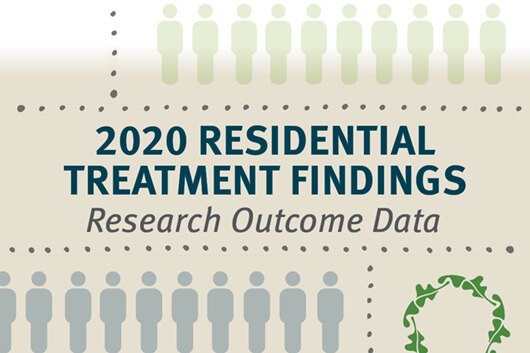Those that are affected by a substance use disorder often recall having certain thoughts or behavioral patterns even in childhood. Depending on where you research, there are many types of roles that we can fall into as children, fostered by our surroundings and personalities as they develop. As most of us were raised by less than perfect caregivers, we were often placed in situations for these roles to be cultivated. The more dysfunctional the environment, the more profoundly these childhood roles may have impacted who we became as adults. How might the role we were cast in as children impact substance use disorder in adulthood?
Different Roles We Learn to Play
There are some classic childhood roles that are most common which different psychologists and therapists have expanded upon them. Of course, every person has their own unique role within a family structure. When taking a closer look, it’s possible to see how any of these roles can lend itself to the early mental and emotional world of a person that has a substance use disorder.
The Caretaker: Children that grow up in environments where a parent is absent, whether it’s because of their duty to financially provide for the family or because they had outside issues such as substance use, often take on the role as caretaker. These children commonly grow up quicker than others as they take on the responsibility of caring for their siblings and sometimes the household. The oldest child usually takes on the caregiver role, feeling pressured to take care of younger and more vulnerable siblings. Children in this role can grow to be sensitive to the needs of those around them, even above their own. They learn to put their own wants and desires second to the needs of those they feel are counting on them.
As adults, the caregiver-child might feel trapped under self-imposed pressure to ensure that everyone around them is taken care of. They may feel a tremendous sense of guilt when they put themselves first and have a difficult time establishing boundaries. As adults, caregiver children could choose partners that take advantage of them, depending upon them to care for all of their needs. The sense of guilt and responsibility endured by a person that embodied this role as a child is often found in adults that battled substance use disorders. Substances provide the needed sense of relief for people that have constantly felt responsible for providing for others.
The Hero: When a child grows up in a home filled with turmoil and fighting with parents that are emotionally unwell, they may develop into the hero or “good” child. The hero child wants to take away bad feelings that arise out of adult situations they don’t understand. They often do this by excelling in school, sports, or other activities. They follow the rules and don’t make waves, wishing to prevent feelings of anger or sadness in the home. The problem that children in this role face is that the negative feelings they wish to remove from their caregivers generally have no root in their behavior of the child, therefore they deal with feelings of guilt and insecurity due to the fact that despite their best efforts, they’re incapable of fixing these issues. As adults, hero children might similarly pour the efforts into one area of their lives, hoping that it might help to change another. When this isn’t successful, they deal with tremendous feelings of guilt and inadequacy. Those that experience substance use disorders as adults might find those same feelings of never being good enough or of having to wear a mask for the outside world to be a big factor in why they use substances.
The Scapegoat: The scapegoat child is also known as the rebel of the family. Opposite of both the caretaker and the hero, the child that becomes the scapegoat is the one that refuses to bend to the will or needs of their caregivers. This child often takes the blame for their siblings, whether intentionally or because they eventually become a natural target for dysfunctional caregivers. The scapegoat child feels angry and resentful at their caregivers for what they fail to provide, whether it’s attention or material comforts.
Rather than working to make sure the environment is more comfortable for everyone around them, the scapegoat child might deliberately cause trouble, especially in pre-teen and teenage years. This child grows up to have issues with authority, trouble dealing with emotions, and often has issues with making informed life choices. The scapegoat might grow into someone that struggles with a substance use disorder due to the tendency to make rebellious choices simply for the sake of it, putting them in more dangerous situations more frequently.
The Clown: In homes where there were serious issues for the caregivers, some children take on the role of the clown or mascot. These children use silliness, laughter, and levity to help break up tense emotional situations. They also tend to use this as a way to gain attention from caregivers that are otherwise distracted or perhaps too exhausted or overwhelmed to give it. The child that acts in the clown role might learn to use humor as a way to distract from their own problems, giving them trouble with responsibility and taking situations seriously as adults.
These children sometimes grow up to suffer from anxiety or depression. However, the unhealthy coping mechanisms developed as children might make it difficult for them to recognize that in themselves or to ask others for help, wishing only to show a carefree, humorous facade. For the adult with a substance use disorder that grew up in this role, it might be difficult to acknowledge the seriousness of their need for help. They might find it easy to manipulate others into believing that they are happy or have things under control, using the same distraction technique they learned as children.
The Lost Child: The lost child is also known as the invisible child. In order to cope with a volatile or dysfunctional home life, the lost child often recedes into themself, or into activities and pursuits outside of the home. The best way of living with extreme or unpleasant circumstances is to avoid them entirely for the child in this role, they are often unable or unwilling to deeply bond with one or both of their caregivers. They prefer to be invisible or unseen, are usually somewhat of a loner, and might be the first to leave the home.
As an adult, the lost child might find it incredibly difficult to deal with conflict, preferring to avoid any emotionally turbulent or volatile situation. Adults that deal with substance use disorders that grew up as lost children are often loners that also struggle to connect and form meaningful bonds with others. They might struggle with intimacy or letting others care for them and they might struggle with feeling as though they have anyone they can depend on.
Experiences from our childhood ultimately shape who we become, but when we are faced with dysfunctional caregivers, it can negatively impact how we deal with issues as an adult. If you have experienced one of the classic roles noted above, a licenced therapist can help you resolve these issues and ensure you find healthier ways to cope with life’s difficulties.
Whatever your childhood or background is, know that recovery is possible and within your reach. Ashley Addiction Treatment believes that connection is the key to recovery, with treatment options focused on holistic, integrated, and compassionate care. Ashley works to promote healing of the mind, body, and spirit, taking into account each individual’s experiences. If you would like to speak to someone about our care options, please reach out to us today at 800-799-4673.




